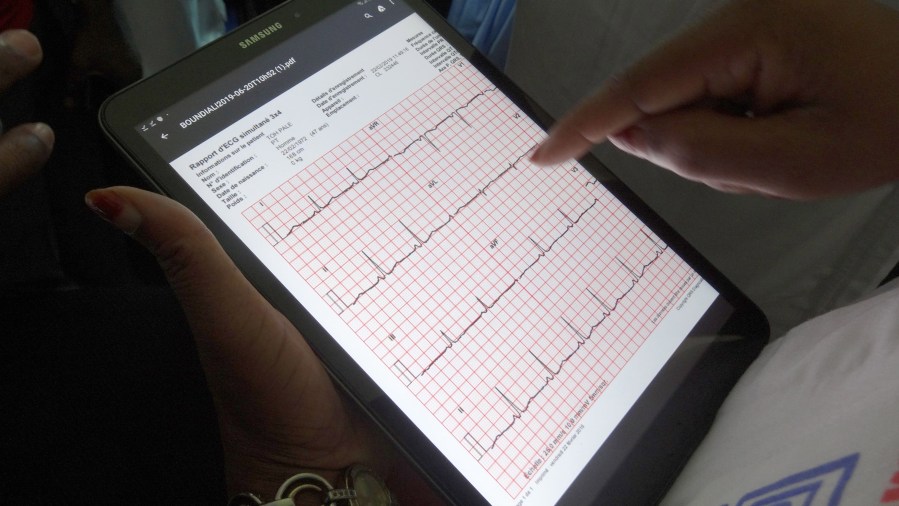Medical tech is the new gold rush for investors during the pandemic

More and more people are seeing their doctors at a distance during the pandemic. And that means that investors are starting to look with new interest at medical technology and how it might be used in the future.
Personal medical technology isn’t especially new, but the pandemic has shown that much of health care can be delivered at a distance.
There’s been a boom in telehealth platforms, online fitness classes and internet-connected devices that read our vital signs.
“Before COVID, you really had to look at these things and figure out where the world was gonna go, how fast it was going to go there. All of a sudden, now you’re giving people — I don’t want to say “no choice” — but now they need these things,” said Harry Glorikian, co-author of “MoneyBall Medicine: Thriving in the New Data-Driven Healthcare Market.”
And tech investors want in. Venture capital entities have invested nearly $5.5 billion in medical tech from January through June, according to Rock Health, a company that helps digital health startups.
But there are those urging caution about the direction these investments take.
“All too often, the technology has attempted to reengineer the process of care rather than leverage the most efficient process of care,” said Jed Constantz, a health care consultant.
For example, he said it took years for the developers of medical records technology to get it right, because early versions made it difficult for doctors to talk to patients while they filled in computerized forms. Constantz said there’s a history of companies creating what’s flashy instead of what’s practical.
“And so the venture capital, investor-backed efforts — I have found them to be largely ignorant. And they wonder why they don’t get traction,” he said.
There are also concerns that new health technology could exacerbate disparities in health care between rich and poor communities. Dr. Mai Pham, the former chief innovation officer at the federal government’s Center for Medicare & Medicaid Innovation, said that smart watches are fun, but the kinds of devices that help most people stay healthy are often more mundane.
“Can you develop a tool that will help them track their medications with reminders, noise reminders, things that automatically dispense medication for them? And/or something that will give their physicians real-time data on which medications they are actually taking?” she said.
According to Rock Health, much of the venture money handed out this year went to companies developing online platforms for more telemedicine, digital pharmacies, fitness classes and more efficient ways to deliver mental health counseling at a distance.
Related links: Insight from Molly Wood
Consulting firm McKinsey & Co. says the speed of telehealth adoption —everything from video visits to digital records — means up to $250 billion in health care spending could soon be going toward virtual care.
But there’s a story from the medical news publication Stat from just last week saying telehealth visits are actually dropping fast from the start of the pandemic. In April, 69% of doctor’s visits were virtual. By mid-July, that number had dropped to 21%. So doctor’s offices are having to recalibrate their scheduling, and according to Stat, this is exactly the sort of shifting landscape that presents a lot of risk for some of those enthusiastic tourist investors. It could be a potential red flag for the $18.5 billion proposed merger between the telemedicine giant Teladoc and health care company Livongo, or the planned IPOs of telehealth companies Amwell and MDLive.
The future of this podcast starts with you.
Every day, the “Marketplace Tech” team demystifies the digital economy with stories that explore more than just Big Tech. We’re committed to covering topics that matter to you and the world around us, diving deep into how technology intersects with climate change, inequity, and disinformation.
As part of a nonprofit newsroom, we’re counting on listeners like you to keep this public service paywall-free and available to all.
Support “Marketplace Tech” in any amount today and become a partner in our mission.












